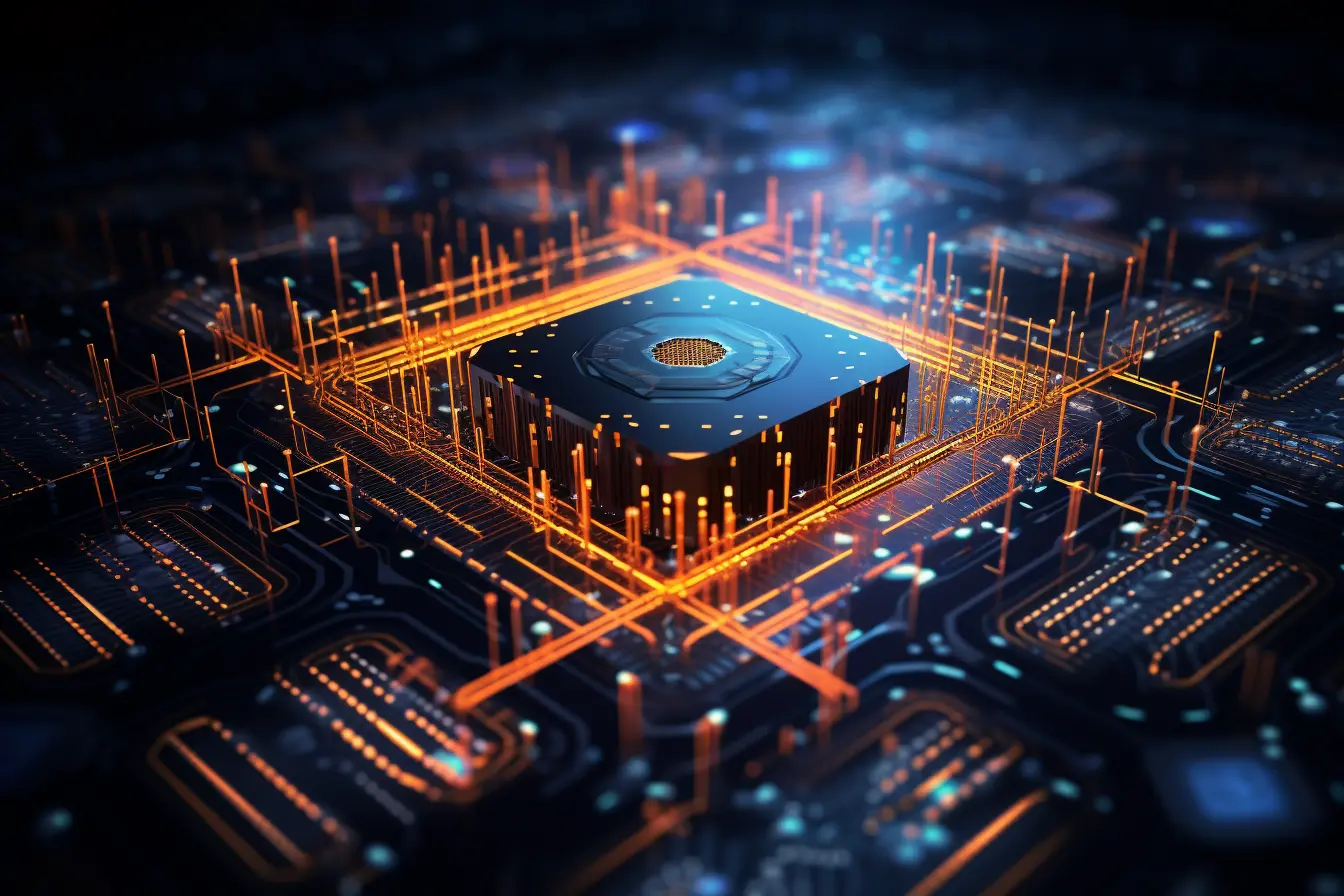
Recognizing Quantum Computing and How It Will Transform Technology
The study of quantum computing, which lies at the nexus of mathematics, physics, and computer science, has the potential to completely transform modern technology. Quantum computers, as opposed to classical computers, use quantum bits, or qubits, as the fundamental unit of information. By utilizing the ideas of quantum physics, these computers are able to do calculations at previously unthinkable speeds and efficiencies. This article examines the basic ideas behind quantum computing, some of its possible uses, and how it will change several technological fields.
What is Quantum Computing?
Quantum computing is a technology that uses the principles of quantum mechanics, which are physical laws governing things at small scales (atoms and subatoms). The essential distinguishing concepts in quantum computing as compared to classical computing include superposition, entanglement, and quantum interference.
1. Superposition
In classical computing, a bit can take either of two possible values: 0 and 1. In contrast to this, a qubit can take many different states at once i.e., it can simultaneously represent both zeroes and ones. An example is that of spinning coin; while it is rotating it does not display just heads or tails but rather exists in a state that could be taken as one with regards to heads or tales. While allowing exponential growth in processing power by making use of superposition quantum computers process large amounts of information concurrently.
- Complication
Entanglement is a quantum phenomena in which two or more qubits, independent of their distance from one another, develop a correlation such that the state of one qubit directly influences the state of the other. This characteristic links qubits in a way that classical bits cannot, allowing quantum computers to do complicated calculations more quickly. Quicker data processing is possible because entangled qubits can instantly share information. - Interference via Quantum
Different quantum states that overlap and interact with one another give rise to quantum interference. Interference is a tool used in quantum computing to reduce the likelihood of wrong outcomes and increase the likelihood of accurate ones. Because of this, quantum algorithms are able to converge on the correct answer more quickly than classical algorithms.
How Quantum Computers Operate
Quantum gates give a quantum computer the same control over qubits as logic gates do in classical computers. These quantum gates control the states of qubits through operations that make use of superposition and entanglement. Quantum algorithms, such as Grover’s algorithm for sorting unsorted databases and Shor’s algorithm for factoring large numbers, exploit these quantum properties to solve problems that are beyond the reach of traditional computers.
The challenge with quantum decoherence arises from the fact that quantum computers have to operate in highly controlled conditions to maintain qubits in their quantum state, which is extremely susceptible to external perturbations. To overcome this, quantum computers often require low temperatures, electromagnetic shielding, and error correction techniques.
Possible Uses for Quantum Information
Because quantum computing can solve complicated problems more quickly than traditional computers, it has the potential to completely transform a variety of industries. These are a few of the more auspicious uses:
- The field of cryptography
The science of cryptography faces both opportunities and challenges from quantum computing. While Shor’s algorithm has the potential to break existing encryption techniques like RSA and ECC, quantum computers also open the door to quantum-resistant cryptography and quantum key distribution (QKD), which promise extremely secure communication channels that are impenetrable to traditional hacking techniques.
- Material Science and Drug Development
Drug discovery and material research have advanced thanks to the remarkable precision with which quantum computers can mimic chemical reactions and molecular structures. Researchers may create novel medications, materials, and catalysts more quickly by simulating complicated interactions at the quantum level. This will speed up the creation of hitherto unattainable therapies and technologies. - Issues with Optimization
Numerous sectors, including manufacturing, banking, and logistics, depend on their ability to solve challenging optimization problems that call for selecting the optimum option from a wide range of options. By analyzing several possible answers at once, quantum computers may solve these issues and create resource management plans, supply chains, and financial portfolios that are more effective.
4. machine learning and artificial intelligence
By analyzing enormous volumes of data in parallel, quantum computing can improve machine learning algorithms and produce predictions that are quicker and more accurate. Personalized medicine, smart infrastructure, autonomous systems, and natural language processing could all benefit from quantum algorithms’ improvements in pattern recognition, natural language processing, and AI optimization.
- Environmental Science and Climate Modelling
Climate modeling entails the simulation of intricate systems with a large number of variables, a work that is frequently beyond the capabilities of traditional computers. These models can be greatly improved by quantum computing, yielding more precise projections of environmental effects, weather patterns, and climate change. This could therefore result in the development of more potent mitigation and ecosystem protection methods for the effects of climate change.
Difficulties with Quantum Information
Quantum computing has great potential, but it also confronts a number of serious obstacles.
- Quantum Decoherence and Qubit Stability
Because qubits are so sensitive to their surroundings, it can be difficult to keep them in their quantum state. One of the main obstacles to creating useful quantum computers is quantum decoherence, which occurs when interference from outside sources causes qubits to lose their quantum characteristics. Scholars are investigating diverse approaches to stabilize qubits, such as error correction methodologies and creating qubits with less susceptibility to decoherence.
- Equilibrium
Another challenge is to build large-number qubit quantum computers. Even while existing quantum computers have proven they can function as proofs of concept, it will be difficult to scale them up to the point where they can surpass classical supercomputers in real-world applications. Improvements in quantum control systems, error correction, and qubit design are needed to achieve this scalability. - Development of Algorithms
We are still in the early phases of developing quantum algorithms. Although some algorithms, such as Shor’s and Grover’s, have shown quantum speedup, many real-world uses necessitate the creation of new algorithms that can fully utilize quantum computing. Scientists and engineers are working hard in this field of study to develop algorithms that can address practical issues more quickly than traditional approaches.
- Price and Availability
Building and maintaining quantum computers is costly and necessitates specific tools and settings, such cryogenic cooling systems. As the technology develops, widespread industry use of quantum computing will depend heavily on cost reduction and increased accessibility.
Quantum Computing’s Future
Quantum computing has a bright future ahead of it. Quantum computers are predicted to move from experimental prototypes to useful instruments that can tackle issues beyond the capabilities of classical computers as research continues to overcome present obstacles.
- Developments in Quantum Technology
More potent and dependable quantum computers will result from ongoing research in qubit technology, quantum error correction, and quantum architectures. Advancements in topological qubits, which exhibit more stability than existing qubits, may facilitate quantum system.
- Combination with Conventional Computing
It is not anticipated that quantum computers will supersede classical computers; rather, they will work in tandem with them to handle particular jobs that call for quantum speedup. It is conceivable that hybrid quantum-classical systems—where quantum computers coexist with traditional processors—will develop, providing a well-rounded method of tackling challenging issues. - Cloud computing in quantum physics
Quantum cloud computing systems, which enable companies and researchers to remotely access quantum processing power, are anticipated to arise as quantum computers become more widely available. Cloud-based quantum computing services are now available from companies like IBM, Google, and Amazon, allowing users to perform quantum algorithms on actual quantum hardware without the need for specialist gear.
4. Social and Moral Consequences
Significant societal and ethical ramifications will result from the development of quantum computing, especially in fields like artificial intelligence, cybersecurity, and privacy. It will be crucial to create moral guidelines and laws as quantum technologies progress to guarantee that these potent instruments are applied sensibly and in the interests of humanity.
conclusion
The paradigm change in computation that quantum computing brings about has the potential to completely transform a variety of industries, including drug development and cryptography. Even while the technology is still in its early stages, the speed at which research and development are proceeding indicates that quantum computers may soon be able to tackle issues that are today insurmountable. With further exploration of the boundaries of quantum mechanics and computation, we anticipate remarkable developments in the future that will transform the technological environment and open up fresh avenues for creativity and exploration.READ MORE BLOGS

